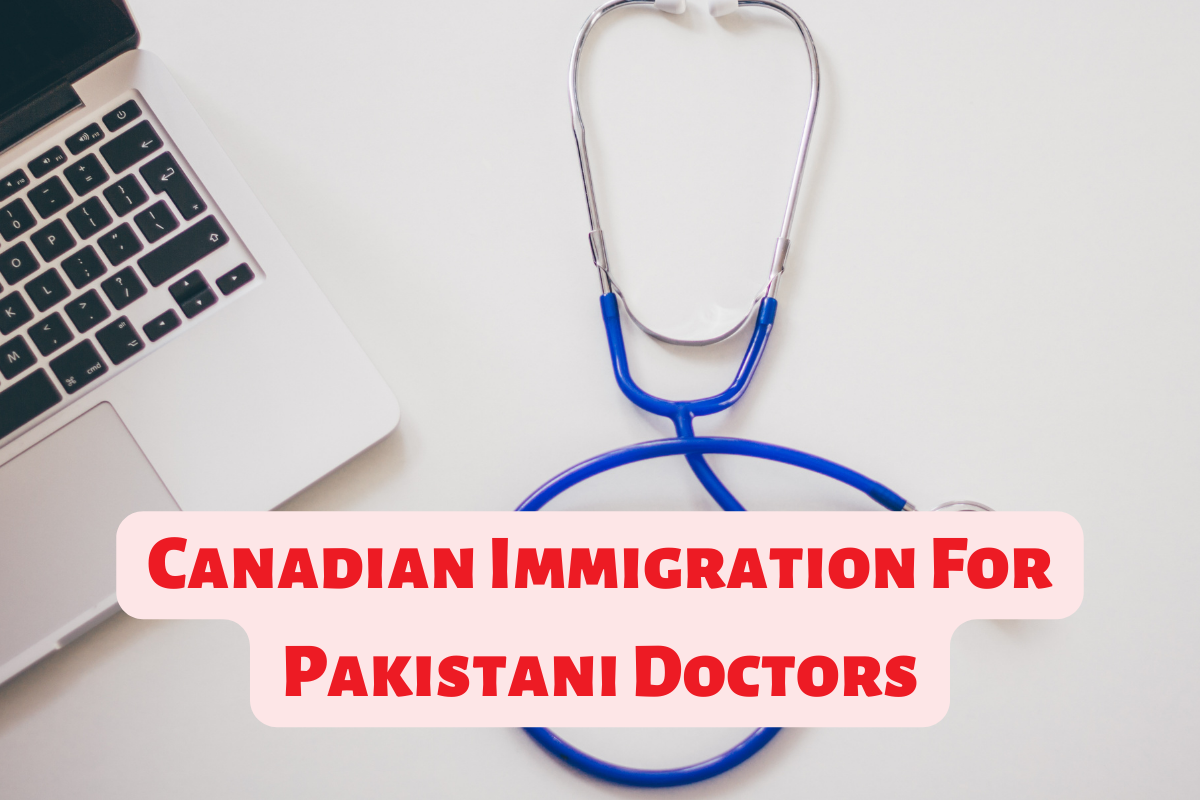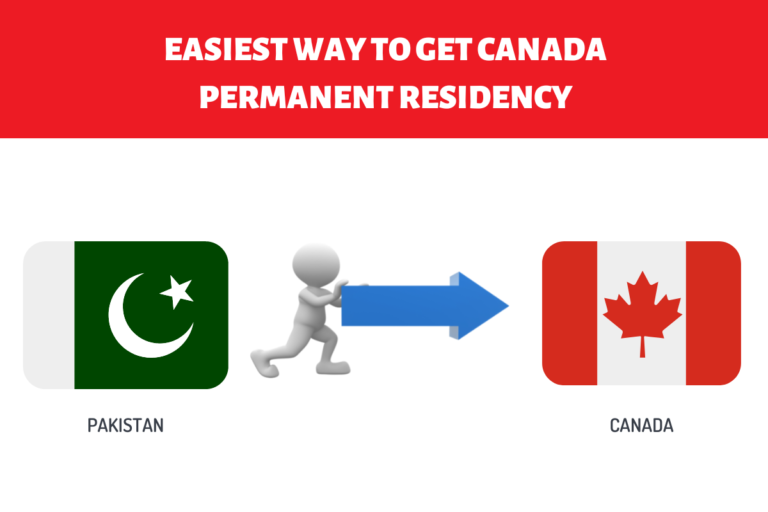Canadian Immigration For Pakistani Doctors In 2023
How good is 2023 for Doctors applying for a Canada PR?
Canada has a high demand for healthcare professionals, including doctors, and has several programs that facilitate their immigration to Canada.
The eligibility criteria and the selection process for immigration programs can change over time, depending on the labor market needs, economic conditions, and other factors. Therefore, it’s essential to check the latest information and requirements for the specific immigration program that you’re interested in.
The Canadian government’s official website is a reliable source of information about immigration programs, including the Federal Skilled Worker Program, the Federal Skilled Trades Program, and the Canadian Experience Class, which are popular pathways to permanent residency for skilled workers, including doctors. You can also consult with a licensed immigration consultant or lawyer for personalized advice and assistance with the application process.
How can Pakistani Doctors Apply for Canadian Immigration?
Pakistani doctors can apply for Canadian immigration through various programs offered by the Canadian government. Here are some of the most common pathways for skilled workers, including doctors, to immigrate to Canada:
- Express Entry: This is a points-based system that manages applications for three federal economic immigration programs, including the Federal Skilled Worker Program (FSWP). To be eligible for the FSWP, you must have at least one year of skilled work experience in a National Occupational Classification (NOC) code 0, A, or B, which includes many healthcare professions, including doctors. You must also meet the language proficiency and education requirements and score enough points on the Comprehensive Ranking System (CRS) to receive an Invitation to Apply (ITA) for permanent residence.
- Provincial Nominee Programs (PNPs): Many Canadian provinces and territories have their own immigration programs that allow them to nominate foreign workers for permanent residence based on their labor market needs. Some PNPs have specific streams or categories for healthcare professionals, such as the Ontario Physician Stream, the Nova Scotia Physician Stream, and the Saskatchewan International Physician Practice Assessment (SIPPA) program.
- Atlantic Immigration Pilot Program (AIPP): This is a regional immigration program that targets skilled workers and international graduates in four Atlantic provinces (Nova Scotia, New Brunswick, Newfoundland, Labrador, and Prince Edward Island). The AIPP has a Healthcare Professional Stream that allows eligible doctors to apply for permanent residence.
- Family Sponsorship: If you have a spouse, common-law partner, or dependent child who is a Canadian citizen or permanent resident, they may be able to sponsor you for permanent residence in Canada.
It’s important to note that each immigration program has its own eligibility criteria, the application process, and processing time. You should research the programs that you’re interested in and consult with a licensed immigration consultant or lawyer for personalized advice and assistance with your application.
Work Experience and Related Documents required for Doctors to immigrate to Canada
To immigrate to Canada as a doctor, you typically need to have relevant work experience and education, as well as the necessary licenses and certifications to practice medicine in Canada. Here are some of the work experience and related documents that you may need to provide as part of your immigration application:
- Work Experience: To be eligible for most Canadian immigration programs, including the Federal Skilled Worker Program (FSWP), you must have at least one year of full-time or equivalent part-time work experience in a skilled occupation within the past ten years. Many healthcare professions, including doctors, are classified as skilled occupations under the National Occupational Classification (NOC) system. You will need to provide documentation that proves your work experience, such as reference letters from your employers, pay stubs, and tax returns.
- Education Credentials: You must have your educational credentials assessed by a designated organization to determine their Canadian equivalency. This assessment is called an Educational Credential Assessment (ECA). You may also need to provide transcripts, diplomas, or degrees from your educational institution.
- Licenses and Certifications: To practice medicine in Canada, you will need to have a valid license from the appropriate provincial or territorial regulatory authority. Each province or territory has its own licensing requirements, so you should research the requirements for the province or territory where you intend to live and work. You may also need to provide proof of your medical degree, residency training, and any certifications or memberships in professional organizations.
- Language Proficiency: You will need to demonstrate your proficiency in either English or French, depending on the province or territory where you intend to live and work. Most immigration programs require you to take a language proficiency test, such as the International English Language Testing System (IELTS) or the Canadian English Language Proficiency Index Program (CELPIP).
It’s important to note that each immigration program may have its own specific requirements and documentation. You should consult with a licensed immigration consultant or lawyer for personalized advice and assistance with your application.
What is the minimum salary for Medical Professionals in Canada?
The minimum salary for medical professionals in Canada varies depending on the province or territory, the specialty, and the level of experience. The salaries for medical professionals in Canada are usually higher than the average salary for other occupations due to the high demand and the level of education and training required.
According to data from the Canadian Medical Association, the average gross clinical payment for physicians in Canada was $354,915 in 2019-2020. However, this figure can vary widely depending on the specialty, with some specialties earning more than others.
For example, according to the Canadian Resident Matching Service (CaRMS), the median starting salary for family medicine residents in Canada was $93,000 in 2020-2021, while the median starting salary for orthopedic surgery residents was $69,000 higher at $162,000. Similarly, the median starting salary for psychiatry residents was $83,000, while the median starting salary for ophthalmology residents was $300,000.
It’s important to note that the salary for medical professionals in Canada is also influenced by factors such as the type of practice (e.g., private practice versus public healthcare system), the location, and the level of seniority.
What are the costs associated?
There are various costs associated with immigrating to Canada as a medical professional, including:
- Application Fees: Most Canadian immigration programs have application fees that you must pay when you submit your application. For example, the application fee for the Federal Skilled Worker Program (FSWP) is currently CAD $1,325 per principal applicant, plus an additional CAD $1,325 for a spouse or common-law partner and CAD $225 for each dependent child.
- Educational Credential Assessment (ECA) Fees: To have your educational credentials assessed for Canadian equivalency, you must pay a fee to a designated organization that provides this service. The fee can vary depending on the organization and the level of assessment required.
- Language Proficiency Test Fees: To demonstrate your proficiency in English or French, you will need to take a language proficiency test, such as the International English Language Testing System (IELTS) or the Canadian English Language Proficiency Index Program (CELPIP). The fees for these tests can vary depending on the location and the type of test required.
- Medical Exam Fees: As part of your immigration application, you will need to undergo a medical exam to ensure that you meet the health requirements for immigration to Canada. The cost of the medical exam can vary depending on the country where you are located and the specific medical clinic or practitioner that you use.
- Travel and Moving Expenses: If you are approved for permanent residence in Canada, you will need to pay for travel and moving expenses to relocate to Canada. This can include airfare, shipping fees, and other related costs.
It’s important to note that these costs can add up quickly, and you should budget accordingly when considering immigrating to Canada as a medical professional. You should also consult with a licensed immigration consultant or lawyer for personalized advice and assistance with your application.
What are the requirements for doctors to work in Canada?
To work as a doctor in Canada, there are several requirements that you must meet:
- Medical Degree: You must have a medical degree from a recognized medical school. The degree must be equivalent to a Canadian medical degree.
- Medical License: You must have a license to practice medicine in Canada. Each province or territory has its own licensing requirements. You will need to obtain a license from the regulatory authority in the province or territory where you intend to work. Typically, you will need to pass an exam and demonstrate your qualifications, which may include your medical degree, work experience, and language proficiency.
- Language Proficiency: You must be proficient in either English or French, depending on the province or territory where you intend to work. Most regulatory authorities require you to take a language proficiency test, such as the International English Language Testing System (IELTS) or the Canadian English Language Proficiency Index Program (CELPIP).
- Residency Training: You must complete a residency training program in Canada. The length of the program varies depending on the specialty, but most programs last between two and five years. You must also pass the qualifying exams for your specialty to become certified as a specialist in Canada.
- Work Experience: You must have work experience in your specialty. The amount of work experience required varies depending on the specialty and the regulatory authority. You may also need to provide documentation that proves your work experience, such as reference letters from your employers, pay stubs, and tax returns.
- Good Standing: You must be in good standing with the regulatory authority in your home country and any other countries where you have practiced medicine.
It’s important to note that each province or territory may have its own specific requirements for doctors to work in Canada. You should consult with the provincial or territory regulatory authority where you intend to work for more information on their specific requirements.
How to Obtain a License to Practice Medicine in Canada?
To obtain a license to practice medicine in Canada, you will need to follow these general steps:
- Determine the Province or Territory where you want to work: Each province or territory has its own regulatory body that oversees the practice of medicine. You will need to determine which regulatory body oversees the practice of medicine in the province or territory where you want to work.
- Submit your Credentials for Assessment: You will need to have your medical degree and credentials assessed for Canadian equivalency by a designated organization. The organization will provide you with a report that will help the regulatory body assess your qualifications.
- Complete a Language Proficiency Test: You will need to demonstrate your proficiency in either English or French by taking a language proficiency test, such as the International English Language Testing System (IELTS) or the Canadian English Language Proficiency Index Program (CELPIP).
- Apply for Licensure: You will need to apply to the regulatory body for licensure. The application process can vary by province or territory but typically involves submitting documentation of your credentials, language proficiency, and work experience.
- Complete any Required Exams or Training: Depending on the province or territory, you may need to complete additional exams or training before you can be licensed to practice medicine. For example, some provinces require you to complete a residency program in Canada before you can practice independently.
- Obtain Liability Insurance: Once you are licensed, you will need to obtain liability insurance to protect yourself against any malpractice claims.
It’s important to note that the process of obtaining a license to practice medicine in Canada can be lengthy and complex. You may want to consider hiring an immigration lawyer or consultant to help you navigate the process and increase your chances of success.




